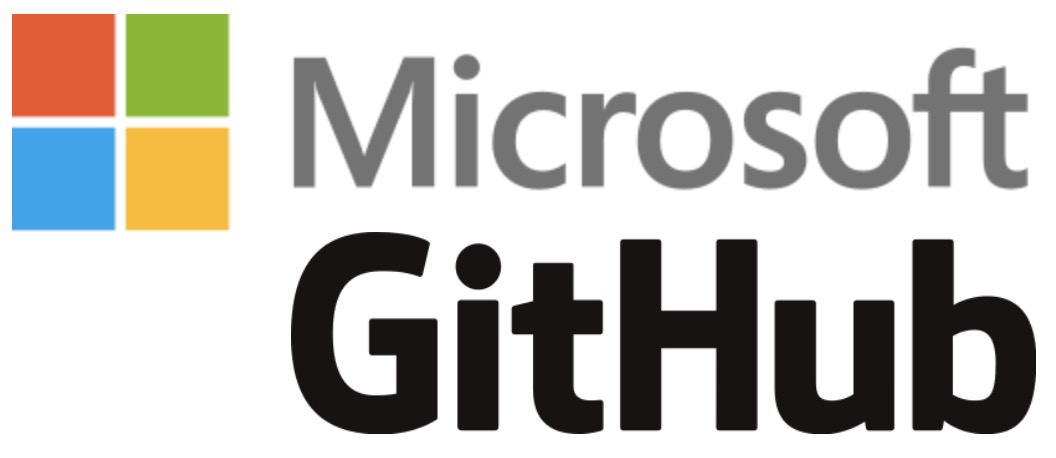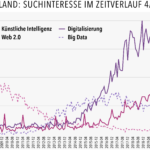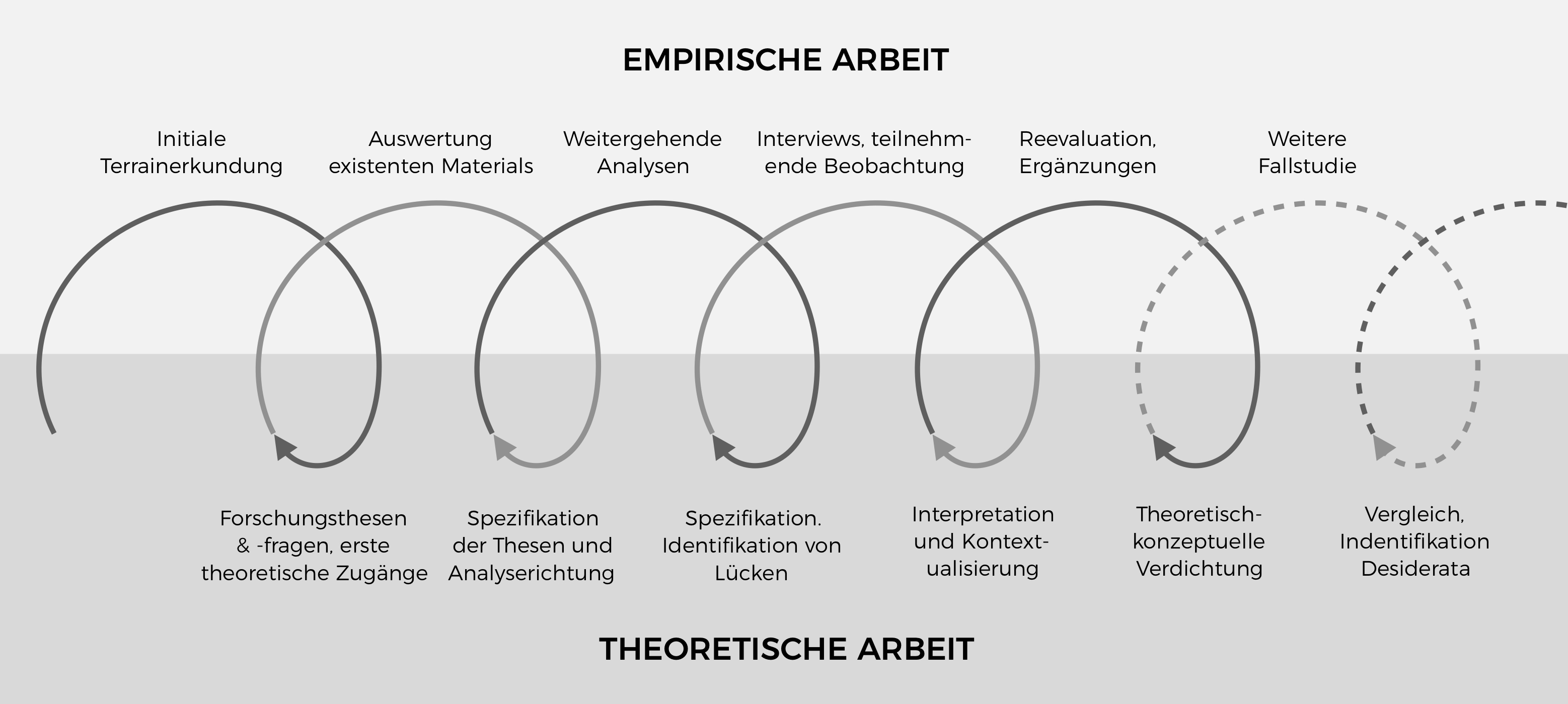5. Juni 2018
Das US-amerikanische IT-Unternehmen Microsoft kauft GitHub für 7,5 Mrd. US-Dollar. Zum Vergleich: Die Akquisition von LinkedIn hat 2016 über 26 Mrd. US-Dollar gekostet (siehe Übersicht zu Microsoft-Akquisitionen seit 1987). Microsoft Vice-Präsident Nat Friedman soll neuer CEO von GitHub werden. Die Übernahme wird in der Developer-Szene kontrovers diskutiert (Überblick auf heise online; golem.de).

Weiterlesen »
18. Mai 2018
Eine Zukunftsvision aus dem Unternehmen Google macht derzeit die Runde im Netz: The Selfish Ledger, ein eigentlich internes geleaktes Konzeptvideo aus dem Jahr 2016, das The Verge nun veröffentlicht hat (Artikel & Video):
»The video was made in late 2016 by Nick Foster, the head of design at X […]. The video, shared internally within Google, imagines a future of total data collection, where Google helps nudge users into alignment with their goals, custom-prints personalized devices to collect more data, and even guides the behavior of entire populations to solve global problems like poverty and disease.
[…] Granted, Foster’s job is to lead design at X, Google’s ›moonshot factory‹ with inherently futuristic goals, and the ledger concept borders on science fiction — but it aligns almost perfectly with attitudes expressed in Google’s existing products. Google Photos already presumes to know what you’ll consider life highlights, proposing entire albums on the basis of its AI interpretations. Google Maps and the Google Assistant both make suggestions based on information they have about your usual location and habits. The trend with all of these services has been toward greater inquisitiveness and assertiveness on Google’s part.
[…] The Selfish Ledger positions Google as the solver of the world’s most intractable problems, fueled by a distressingly intimate degree of personal information from every user and an ease with guiding the behavior of entire populations. There’s nothing to suggest that this is anything more than a thought exercise inside Google […]. But it does provide an illuminating insight into the types of conversations going on within the company that is already the world’s most prolific personal data collector.«
20. Oktober 2017
In diesen Tagen ist mein Artikel »Open-source projects as incubators of innovation: From niche phenomenon to integral part of the industry« in Convergence erschienen:
Over the last 20 years, open-source development has become an integral part of the software industry. Against this backdrop, this article seeks to develop a systematic overview of open-source communities and their socio-economic contexts. I begin with a reconstruction of the genesis of open-source software projects and their changing relationships to established information technology companies. This is followed by the identification of four ideal-type variants of current open-source projects that differ significantly in their modes of coordination and the degree of corporate involvement. Further, I examine why open-source projects lost their subversive connotations while, in contrast to former cases of collective invention, remaining viable beyond the initial phase of innovation.
6. Juli 2017
Aus: Dolata, Ulrich / Schrape, Jan-Felix (2018): Kollektivität und Macht im Internet. Wiesbaden: Springer VS (S. 24–30).
Vieles, was Bewegungen und Gemeinschaften auszeichnet, hat sich mittlerweile [in den Online-Bereich] verschoben: kollektive Meinungsbildung und Abstimmung, politische Kampagnen und Mobilisierung, Organisierung und Koordination der Aktivitäten, fachlicher Austausch und gemeinschaftliche Produktion.
Die genannten sozialen Merkmale der Institutionalisierung kollektiver Akteure werden dadurch zwar nicht außer Kraft gesetzt. Sie werden allerdings substanziell erweitert um neue Organisierungs- und Strukturierungsleistungen von Kommunikation, Produktion und Protest, die das Internet und seine Plattformen als technologische Infrastrukturen bieten.
Dementsprechend lässt sich die Institutionalisierung des Kollektiven heute nicht mehr als rein sozialer, sondern nur noch als soziotechnischer Prozess auf angemessene Weise abbilden: als systematische Verschränkung von sozialen und technischen Organisierungs- und Strukturierungsleistungen, deren Zusammenspiel allerdings von Fall zu Fall erheblich variiert […].
Weiterlesen »
17. Juni 2017
Anfang Juli erscheint das von mir und Ulrich Dolata zusammengestellte Buch »Kollektivität und Macht im Internet: Soziale Bewegungen – Open Source Communities – Internetkonzerne« (Amazon, 19,90 Euro). Das Einführungskapitel lässt sich schon jetzt als Leseprobe bei Springer VS herunterladen.

Das Buch geht den Fragen nach, wie sich die vielfältigen neuartigen Formen von Kollektivität in der Internetgesellschaft voneinander unterscheiden und typisieren lassen und welche Rolle die technischen Infrastrukturen des Netzes für deren Entstehung bzw. Verstetigung spielen. Es wird diskutiert, auf welche Weise sich die Mobilisierung und Organisierung sozialer Bewegungen durch Social Media verändert, wie Arbeits- und Entscheidungsprozesse in Open-Source-Communities strukturiert sind und über welche ökonomische und regelsetzende Macht die großen Internetkonzerne als wesentliche Gatekeeper und Kuratoren der Kommunikation im Netz heute verfügen.
















